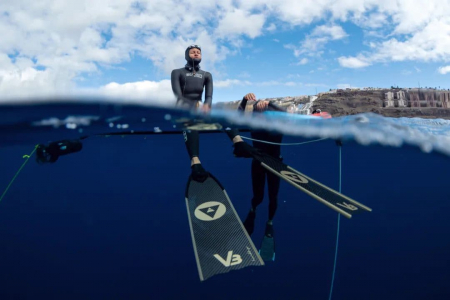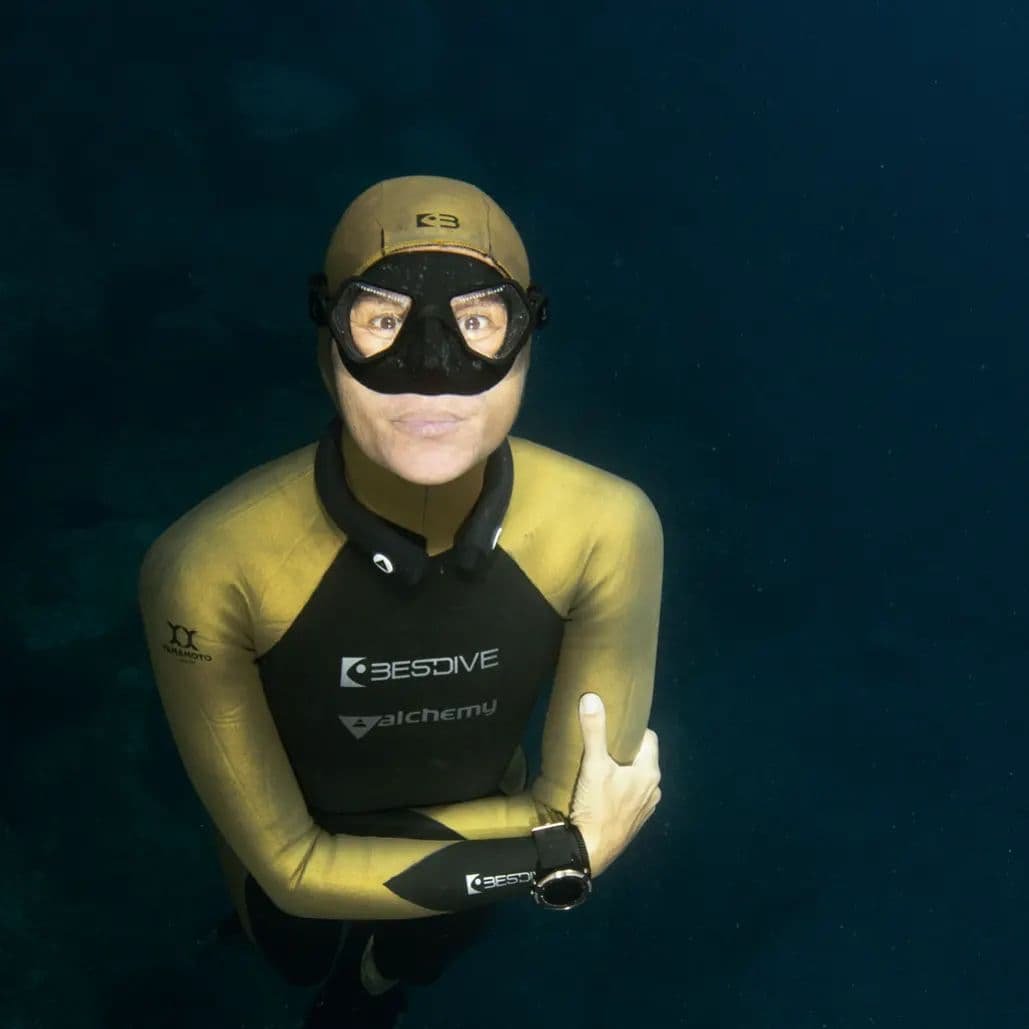
 Nick Pelios
Freediver, Creator
Nick Pelios
Freediver, Creator

 Nick Pelios
Freediver, Creator
Nick Pelios
Freediver, Creator
Renowned freediver Linda Paganelli, well-known for her breathtaking underwater exploits, recently shared a gripping narrative of her latest diving adventure, which took an unexpected turn into a blackout scenario. Paganelli, who has consistently pushed the boundaries of her sport, delves into the details of a nail-biting dive that left her questioning the factors behind her temporary loss of consciousness.
In the world of freediving, a "poopy dive" is lingo for an early turn due to an equalization issue. Paganelli described her usual reaction to such instances, a tactic that involved ignoring her coach, known as Bub, who persistently sought an explanation. However, her most recent dive, characterized by a blackout, prompted her to break from her pattern of silence and share her experience. The dive in question was a 100-meter bifins dive. Like previous incidents of blacking out and two competition LMCs (loss of motor control), the ordeal began with hyperventilation. Paganelli admitted that sometimes she can pinpoint the cause, while other times, it remains elusive.

In this instance, she aimed to extend her breath-hold by taking five deep breaths before her final inhale, instead of her usual three. Her dive conditions changed when the freediver preceding her did not start (DNS), granting her extra time at the dive line. Unbeknownst to her, this meant a more extended breath-hold period. Paganelli suspects this may have contributed to her blackout. She described her thoughts during the dive as she noticed a slight tingle in her left hand. As her thoughts raced, she dove, but the water erased her awareness of the preceding events. The dive seemed to go well at first, with a smooth descent and manageable thermocline. However, things took an unexpected turn when she hit the 90-meter mark, causing her to swallow air she couldn't afford to lose. Nonetheless, Paganelli managed to equalize the last 10 meters without much effort.

As she resurfaced, Paganelli realized she was approaching the part she dreaded the most, the onset of narcosis. She attempted to embrace it rather than fight it, but the hallucinatory effects took hold. Her account of this phase is a testament to the surreal experience that blacking out can be, including feelings of falling asleep and profound disorientation. A safety diver eventually appeared before her, marking the end of her ordeal. Paganelli surfaced unaided due to muscle memory but succumbed to the effects of her blackout shortly afterward. Her experience in this phase is eerily similar to the sensation of being torn from a captivating dream by an alarm clock, a feeling many can relate to. Paganelli's post-dive reflection brought her to several theories as to why she blacked out, including the role of hyperventilation, her reaction to narcosis, or perhaps even exhaustion from a strenuous diving season with minimal training. She mentioned achieving a 99-meter dive shortly before the incident, which contradicts the idea of physical exhaustion. In conclusion, Paganelli expressed a desire to understand the unpredictable nature of blackouts in freediving and hopes to uncover the factors that contribute to such incidents. Her unwavering commitment to her sport and her desire to learn from these experiences continue to inspire both seasoned freedivers and newcomers to the sport.